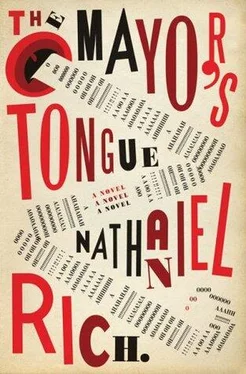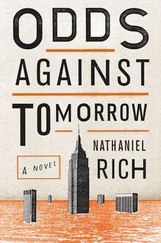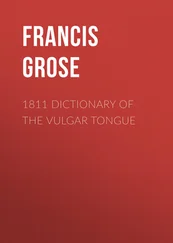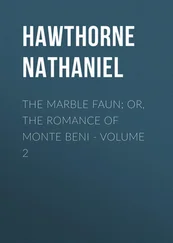"I know! It's so sad! It's so sad to lose the one you love. Let's mourn together. Life is the saddest. We are kindred souls," and more to that effect, in a screaming mania of empathy. Although Eugene believed the young man was acting with sincerity, the girl, upon seeing the rapidly advancing stranger, did not. She cursed at him and ran off, causing the man to recoil in a whole new series of injured sobs.
The two tussling grandchildren grew alarmed, abruptly stopped fighting, and in chorus began to bawl. When the man saw them, a faint shadow of hope glided across his face. Swooping, hunched, he ran over.
"Children! My poor children, you sad, innocent, lonely creatures!" And then he burst into a high yelp, since the children's nanny had begun to clock him with her handbag. He crumpled to the ground holding his neck, crawled a few feet, and then curled into a fetal position. Eugene couldn't watch anymore. He approached the man cautiously and stood him up by his shoulders, leading him out of the piazza to the closest side street.
"What's wrong with you, man?" said Eugene. "Get yourself together."
The man rubbed his face with his wrists, and his convulsions slowed. Eugene got his first good look at him. His eyes were rimmed with tears and his thin nose was muddied, but he had a romantic, swaggering mouth and a concentration to his glare that unsettled Eugene. He was tall, thin, and nimble; his suit, despite being creased and speckled with street dirt and other bits of scum, fit tight and flattering. Eugene was jolted by a feeling that he recognized him from some earlier period of his life.
"Have you seen. . a girl. . around here?" Eugene was stunned — the man spoke perfect English.
"Who?" asked Eugene. A new exasperation started to build up in him. "Are you looking for Sonia?"
"Well, I don't know her name, but I love her I'm sure."
Eugene patiently described Sonia in the most straightforward terms he could muster: longish brown-red hair, crescent-shaped scar beneath one eye, wide mouth, lucent pale skin, excitable and headstrong, yea high.
"No, I don't think that's her," said the man, stifling a whimper. He called himself Enzo and explained that although he was not English, he was "naturally adept at foreign languages." He was from a city in northern Italy and couldn't remember how he had gotten to Trieste. The only thing he was certain of was that he had last seen his girlfriend at a bus stop. Ever since then he had wandered around the city, visiting every bus and tram stop, searching for her.
"I don't know what else to do," he said, and again gave in to his mounting despair. Eugene sympathized. Like Enzo, Eugene was looking all over Trieste for a girl who had fled for reasons unknown. But at least he knew Sonia's name. And then a sick, green panic roiled his belly and slunk up his spine. It told him that Enzo was holding out on him — maybe he was after Sonia too.
As Enzo bent over on the curb, hacking through sobs, Eugene silently backed away and peeled around the corner. Enzo didn't bother to give chase. Soon Eugene was back in Piazza Unità, among the sunglassed tourists heading out to the Molo Audace for the sunset, the briskly walking bankers, and the North African peddlers, who blocked his way with arms full of slippers and women's purses. He pushed through their outstretched arms and walked along the water, looking for a familiar face. He sat by the staircase that led into the sea, exactly where Sonia had been sitting when she claimed to have met Eakins. In the afternoon light, the Adriatic was blue-black and lazy, washing against the seawalls with such indifference that it seemed as if the tide were as exhausted by the summer sun as Eugene was. He removed his sneakers and sweaty socks and dipped his ankles in the cool water. He needed to think, and rest. Maybe, if he was quiet enough, Sonia would be able to reach him somehow.
A taunting voice whispered loudly in his ear.
"Xe el cinciut!"
He turned, and saw the two little girls he had met his first morning in the city. They had brought their friends.
Eugene jumped onto the pavement, his feet dripping seawater. "I am not the fucking cinciut. I'm just a tourist."
The children — there were at least a dozen of them — stood impassive and silent, staring blankly at his forehead like it was a television set. The leader couldn't have been older than twelve, but his eyes were sunken and his yellow teeth were jagged in his dark mouth. He held a dead sparrow against his jacket.
"You look like you might be a cinciut," said the boy, solicitous and hoarse.
"Well, I'm not. I'm from New York." This aroused a groundswell of murmured interest among the children. They conferred secretly among one another with cupped hands and wide-eyed stares.
"Listen," said Eugene. "There was a girl here once, a friend of mine, sitting right here, whom you harassed. Do you remember her? She had reddish hair, pale skin, gray eyes. ."
"With a little scar under the eye?"
"Yes! That's her."
"Ah, the cinciut. We sent her away. Don't worry about her."
"Where?"
"Up in the Carso, where the cinciuts live. There's a small wicked town there. It's our job to protect the city from their kind. Otherwise they'd come down and choke us in our sleep."
One of the children, a skinny little runt who resembled one of Trieste's stray cats, his movements quick with some disease, blew a snot rocket onto the pavement.
"What about the man that was with her?" said Eugene. "Elderly, strong, low voice, very tall—"
"What do you want with her anyway?" said the leader. "If you are really a tourist you should go visit Miramare or the Rivoltella or throw breadcrumbs in the Canal. Buy a whore at La Chiave d'Oro. But leave our demons alone."
"Do you know where I can find the man that was with her?"
"There was no man. Just the girl."
"I heard that a man scared you away."
The children took a step toward him. Eugene took one back toward the seawall, so that his heel was just inches from the water.
"We don't back down from anyone," said the leader, chewing the inside of his cheek. "Especially not touristics."
Eugene decided, after briefly weighing his options, not to fight the ragtag group of gangly, muddied children. Children at that age don't fear getting banged up, so they can be dangerous and unpredictable in a skirmish. They have nothing to lose. That's what Eugene told himself anyway. But just then a high, reedy voice rang out from behind the urchin gang. At first, Eugene couldn't see who it was, since the owner of the voice was shorter than the children.
Frank Lang pushed through the children's ranks, waving his cane like a hatchet, and turned to face them in a trembling rage. The kids spat at Eugene and then, unhurriedly, began to retreat, laughing at the odd little man, sticking out their tongues and lifting up their unscrubbed chins in the Italian gesture of mockery.
Just before the children left the piazza, their hoarse-voiced leader spoke one last time to Eugene:
"Be careful, touristic," he said. "I hope you realize: your little friend here might be one of them too."
Mr. Schmitz finds Rutherford's second letter as soon as he gets home from his monthly meeting of the Committee of Retired Insurance Workers. He immediately sticks it in his pocket to hide it from his wife, even though she undoubtedly must have noticed it when she brought in the mail: it was lying flat on top of the bills, AARP pamphlets, and coupons. Mr. Schmitz walks through the living room and finds Agnes in the bathroom, on her knees beside a bucket of bleach water, the bath faucet running.
Читать дальше












